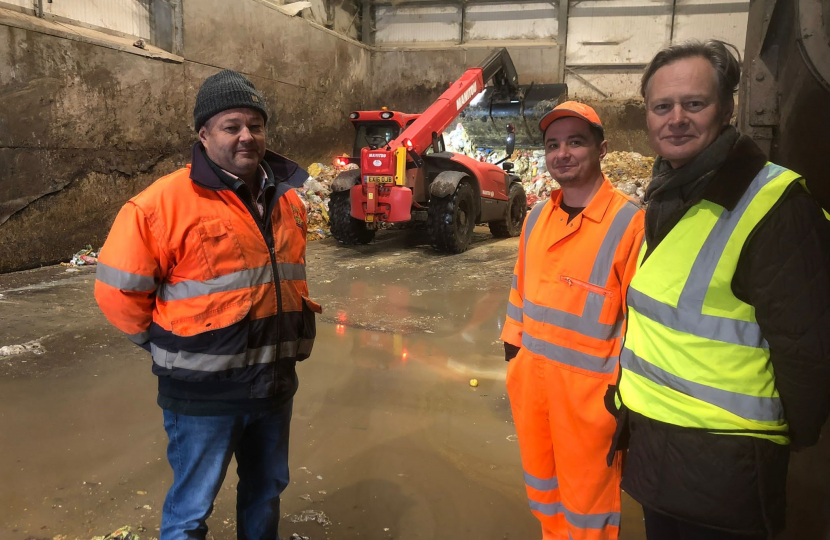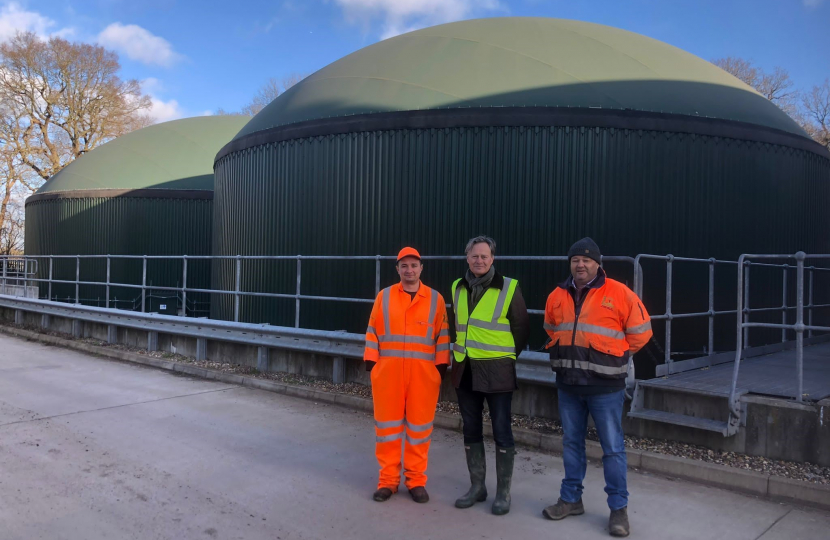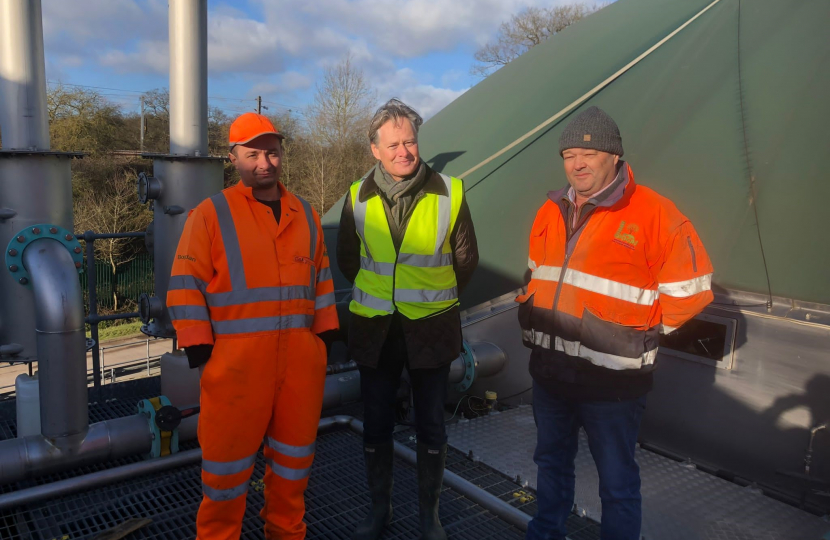Matthew has visited the North London Anaerobic Digestion Facility to see how food waste is removed from the waste chain to produce energy. This forms part of the Government’s Green Gas Support Scheme (GGSS) which provides tariff support for biomethane produced via anaerobic digestion and injected into the gas grid.
The Government intends that the GGSS will produce enough green gas to heat around 200,000 homes annually during peak years of biomethane production, replacing the equivalent amount of natural gas which would otherwise be used. This would ensure 3.7MtCO2e of carbon savings over Carbon Budgets 4 and 5, and 8.2MtCO2e of carbon savings over its lifetime. This is equivalent to taking up to approximately 7 million cars off the road for a year.
Matthew learnt that the plant he visited was not able to secure enough material to run the facility at full capacity. However, given the agreement Matthew secured from the then Environment Secretary to ensure that the Environment Bill would legislate so that all councils would collect food waste, this supply is expected to increase, alongside volumes of commercial food waste collected separately as a result of Defra’s policies.
Matthew said: “During my time on Barnet Council, I expanded the range of recyclable materials and was disappointed when the Council stopped its food waste collections. However, this will change as the Environment Act legislates to ensure that every household in England will see their waste collected and either composted or used to create energy. That is not only good for the environment but also provides energy from waste.”




